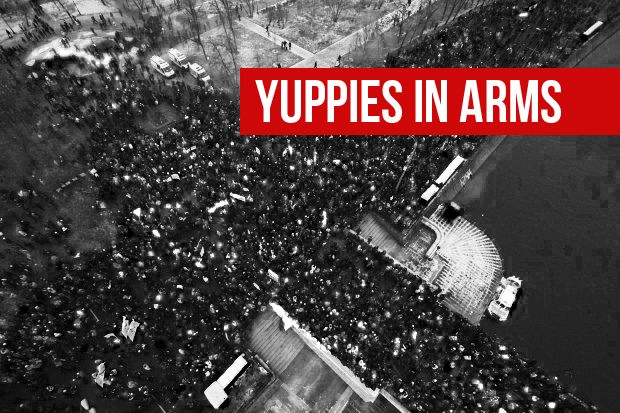The most meaningful transformation in Russia over the last 20 years has been the rise of an educated, affluent urban professional class. Its members have enjoyed unprecedented career success, consumer choice and personal freedom. In exchange, they let the professional ruling class do as it pleased. That has suddenly changed. “As Russian Prime Minister Vladimir Putin looks toward this Sunday’s presidential election, a contest he is all but assured of winning, he will have to confront a difficult question that will linger long after his likely victory: Why have so many of these people, members of Russia’s burgeoning urban professional class, turned against the very system responsible for their status?” Pulitzer Center grantee Josh Yaffa offers some answers in his deeply reported and insightful essay in Foreign Affairs.
Josh, a visiting scholar at Columbia University’s Harriman Institute, also takes a look at another critical component of Russia’s DNA: political satire. Writing for The New York Times, Josh says that these same urban professionals “are forging a new political language: light, very much alive and thickly coated with irony.” After last December’s seriously flawed parliamentary elections, this group fought back with biting wit. Did you hear the one about the mental patient who wanted to know where all the countries' oil and gas revenues have gone?
*
Senegal is another country in the midst of an election season and grantee Ricci Shryock is reporting on the success of a youthful opposition movement that has been using hip-hop as a weapon against octogenarian incumbent Aboudlaya Wade. The opposition did well enough in this week’s vote to force a run-off against Wade later in March. Ricci also catches up with rapper Red Black.
Until next week,
Tom Hundley
Senior Editor
